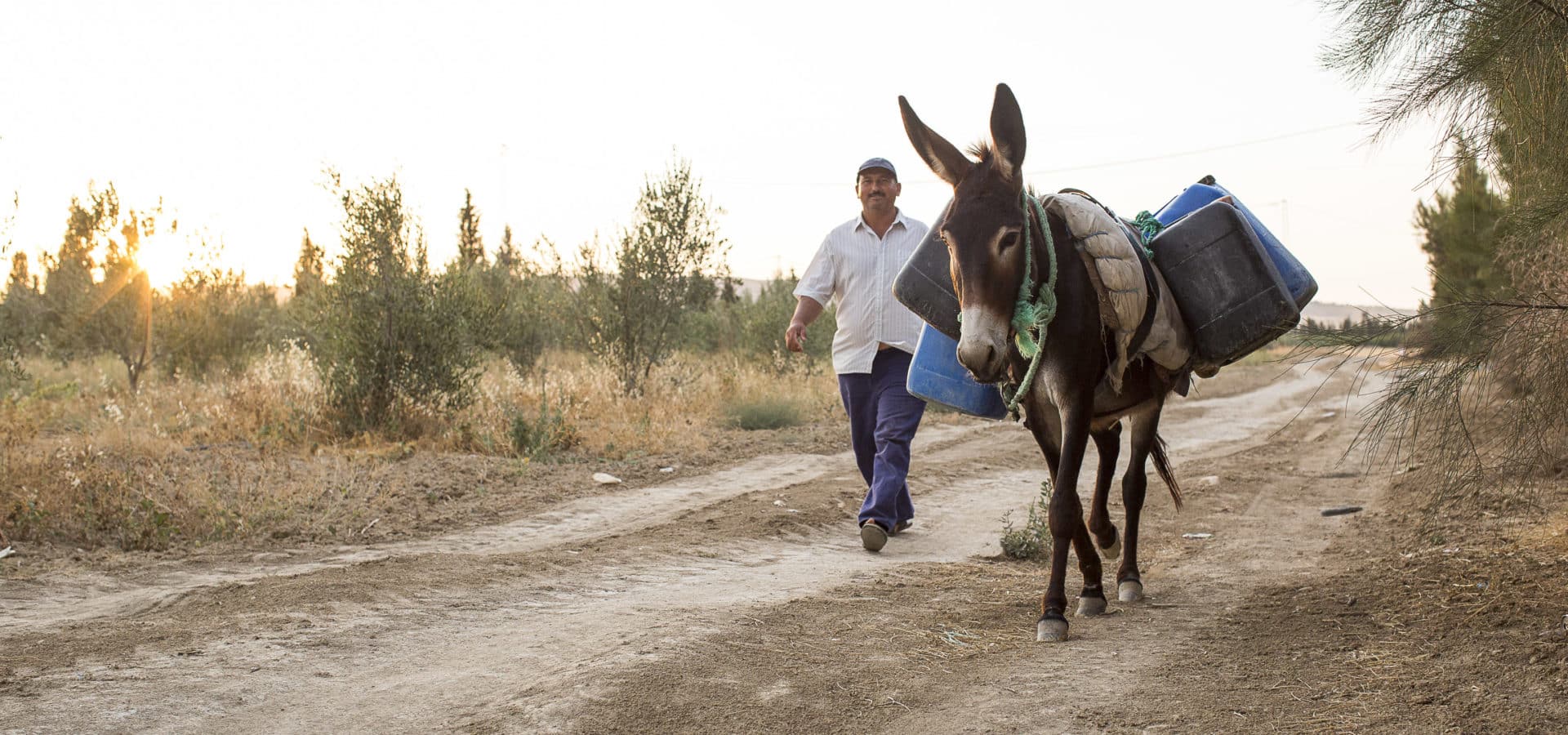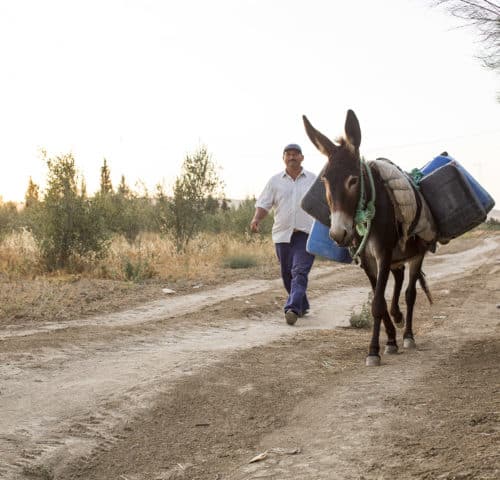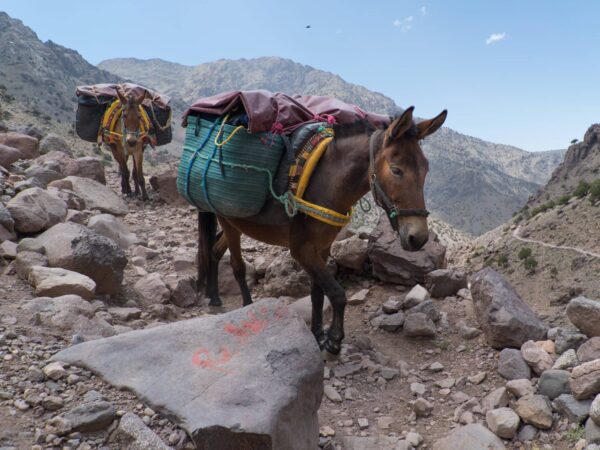Tunisia was one of the first countries our founders Kate and Nina Hosali visited in the 1920s to treat sick and injured working animals. Today, as the Hosalis did all those years ago, our team visits towns and remote areas to provide vital, free veterinary care for animals in need.
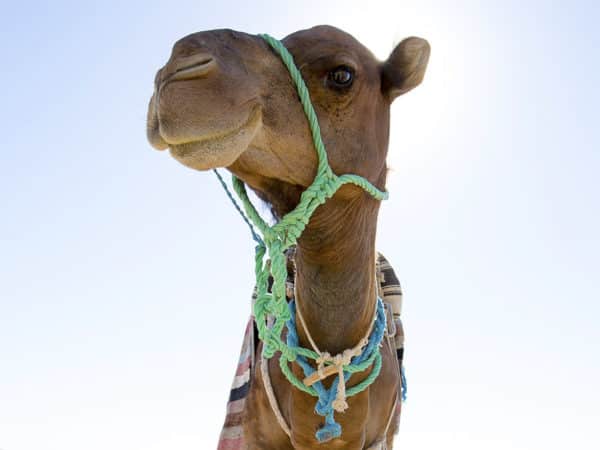
Tunisia at a glance
- Population: 12.36 million
- Area: 163,610 square km
- Location: North Africa
- Capital city: Tunis
- Estimated number of working animals: 621,585
- Number of SPANA centres and mobile veterinary clinics: Eight
- Number of working animals treated in 2023: 27,126
- Number of animal owners trained in 2023: 5,976
- Number of veterinary professionals trained in 2023: 52
- Number of children receiving animal welfare education in 2023: 12,401
Our work in Tunisia
We currently have four veterinary centres in Bou Salem, Kasserine, Kebili and Siliana. We also have four mobile clinics that travel to treat animals in souks and rural areas, often in the poorest communities. Tunisia has a large population of working equids and camels. Common problems our vets see include injuries caused by inappropriate harnessing and shoeing. That’s why we also provide practical help and advice to working animal owners, teaching them how to look after their animals and when they should seek treatment.
We also provide animal welfare education for children through a network of animal clubs in schools. Our hands-on mobile exhibition, an interactive education bus, also tours the country to bring engaging, interactive displays and information to schoolchildren.
We also take action for working animals when they need us most. Working animals in Tunisia were hit hard by the impact of the global coronavirus (Covid-19) pandemic, especially those working in the tourism industry. SPANA’s emergency feeding programme ensured those worst affected received the lifesaving food and emergency veterinary treatment they needed.
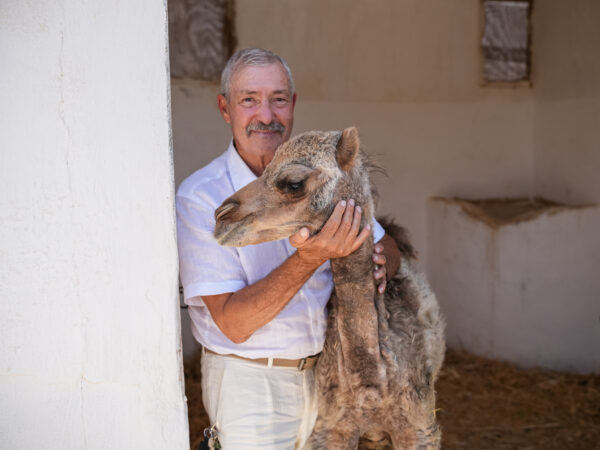
Q&A with Dr Sami Mzabi, SPANA Tunisia Country Director
Tunisia was one of the first countries that SPANA started work in and the location of the charity’s first veterinary centre and first mobile clinic. What do you think SPANA’s founders, Kate and Nina Hosali, would think of your team’s work today?
Since the arrival of Kate and Nina in Tunisia, SPANA has continued to evolve. We have had enormous veterinary and educational successes. Our local relationships are excellent, and we have signed many agreements with the Ministry of National Education and the Ministry of Agriculture. I think Kate and Nina would be very happy.
How did you and your team celebrate SPANA’s global centenary?
We celebrated the centenary of SPANA with a special event in Tozeur, in southern Tunisia. The event was attended by SPANA’s Chief Executive, Linda Edwards, national and local authorities, animal welfare partners, vets, teachers, and owners of working animals. There were speeches, discussions on animal welfare and a ceremony of traditional song and dance.
What achievements are you and your team most proud of?
We are proud of all our work across the country, but we are especially proud of our four veterinary centres, which are doing good work to help working animals, and of our close contact and strong relationships with the owners of working animals, teachers, and students.
Are there any cases that you remember where you and your team made a real difference to a working animal’s life?
We once treated a mule who was suffering from lameness and an infection in his lower leg. We gave the mule an X-ray, which revealed a foreign object under his skin. We made an incision to remove the object – it was a piece of wire that had been embedded for a very long time under his skin and was invisible to the naked eye. The treatment was successful, and the mule made a full recovery.
Other countries we work in
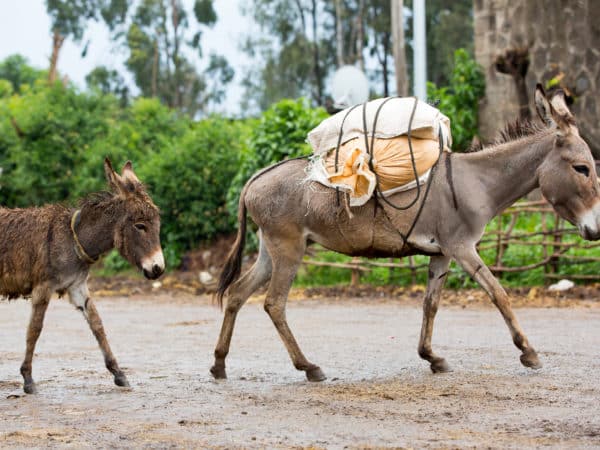
Helping working animals in Ethiopia
Find out more about how SPANA helps working animals in Ethiopia.

Helping working animals in Ethiopia
Find out more about how SPANA helps working animals in Ethiopia.

